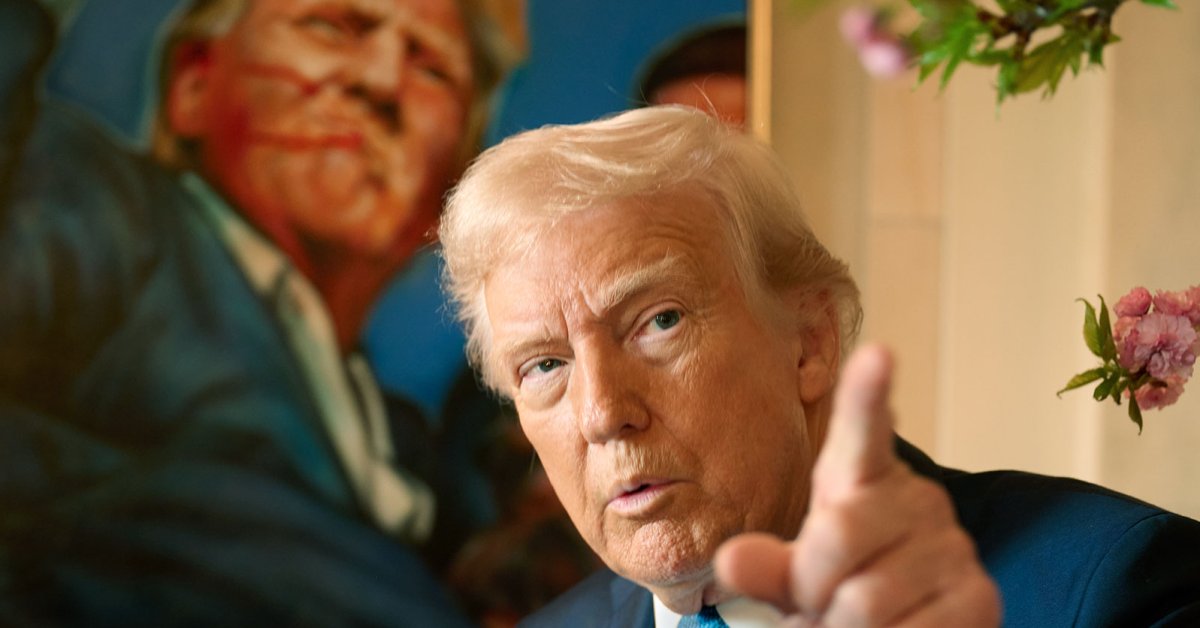## Level Up Your Political Awareness: Did Trump Steal the American Dream?
Hold onto your controllers, gamers, because things are about to get real. Forget loot drops and power-ups, we’re talking about a world-historical heist – and it’s not happening in your favorite RPG.


Playing Chess, or Checkers? Analyzing Trump’s Trade Strategy and its International Consequences
A Game of Tariffs and Retaliation
Trump’s trade strategy was characterized by a heavy reliance on tariffs, aiming to pressure other countries into renegotiating trade deals more favorably for the United States. This approach, however, triggered a wave of retaliatory tariffs from trading partners, escalating into a global trade war. The impact of these tariffs was multifaceted, affecting not only businesses and consumers but also international relations and global economic stability.
A key example was the imposition of a 25% tariff on steel and aluminum imports from various countries, including allies like Canada and the European Union. This move sparked immediate backlash, with trading partners retaliating with tariffs on American goods, ranging from agricultural products to automobiles. The resulting trade tensions disrupted supply chains, increased costs for businesses, and ultimately harmed both the American and global economies.
Winners and Losers: The Disparate Impacts of Trump’s Trade Policies
The distributional effects of Trump’s trade policies were uneven, with some industries and sectors benefiting while others suffered losses. For instance, American steel and aluminum producers saw a temporary boost in demand as domestic prices rose due to the tariffs. However, this gain came at the expense of manufacturing industries that relied on imported steel and aluminum, leading to job losses and higher production costs.
Moreover, consumers bore the brunt of the trade war through higher prices for a wide range of goods, from everyday necessities to imported electronics. The tariffs imposed on products like washing machines and solar panels, for example, resulted in price increases that disproportionately affected low- and middle-income households.
Long-Term Consequences: A Legacy of Uncertainty
The long-term consequences of Trump’s trade strategy remain a subject of debate. Some argue that the tariffs forced other countries to renegotiate trade deals that were previously unfavorable to the United States, ultimately benefiting American businesses and workers. Others contend that the trade war damaged America’s global standing, undermined international cooperation, and inflicted lasting harm on the global economy.
One key concern is the potential for a continued escalation of trade tensions. The Trump administration’s aggressive use of tariffs set a precedent that could embolden other countries to engage in protectionist measures, leading to a further fragmentation of the global trading system.
The Shifting Sands of Immigration Policy: A Game of Hard Lines and Broken Promises
“Build that Wall”: Trump’s Hardline Immigration Stances and Their Real-World Impact
A central pillar of Trump’s campaign was a pledge to build a wall along the U.S.-Mexico border, funded by Mexico, as a means to curb illegal immigration. This promise resonated with a segment of the electorate concerned about border security and undocumented immigration. However, the wall project faced significant opposition and legal challenges, ultimately proving to be more symbolic than practical.
A Crackdown on Asylum Seekers: Examining the Human Cost of Trump’s Immigration Policies
The Trump administration implemented a series of restrictive immigration policies, including the “zero tolerance” policy, which resulted in the separation of thousands of migrant children from their parents at the border. This policy, condemned by human rights groups and international organizations, caused immense suffering and trauma for families seeking asylum.
Moreover, Trump’s administration significantly curtailed access to asylum, imposing stringent requirements and limiting the grounds for asylum claims. This made it incredibly difficult for individuals fleeing violence, persecution, and other threats to seek refuge in the United States.
The Future of Immigration: Trump’s Legacy and the Unfolding Immigration Landscape
Trump’s immigration policies left a lasting impact on the U.S. immigration system, shaping the political discourse and legal landscape for years to come. The legacy of these policies, particularly the separation of families and the erosion of asylum protections, remains a contentious issue. The future of immigration policy in the United States will likely continue to be a subject of intense debate and political struggle.
Domestic Turmoil: A Nation Divided
The Cult of Personality: Trump’s Appeal and the Divide in American Society
Trump’s presidency was marked by a strong cult of personality, with his supporters deeply devoted to him and his policies. This fervent loyalty, fueled by his rhetoric and his unconventional approach to politics, created a deep divide within American society, exacerbating existing social and political cleavages.
Erosion of Trust: The Impact of Trump’s Rhetoric on Democratic Institutions
Trump’s frequent attacks on the media, the judiciary, and other democratic institutions fueled a growing distrust of these institutions among his supporters. His rhetoric, which often employed divisive language and questioned the legitimacy of democratic processes, undermined the foundations of American democracy.
The Long Game: Analyzing the Potential Long-Term Effects of Trump’s Presidency on American Democracy
The long-term effects of Trump’s presidency on American democracy remain to be fully understood. Some argue that his presidency marked a turning point, eroding democratic norms and institutions. Others contend that the resilience of American democracy will prevail, and that the damage caused by Trump’s presidency will eventually be repaired.
One key concern is the potential for future leaders to exploit the divisions and distrust that Trump exacerbated. The erosion of trust in democratic institutions and the normalization of divisive rhetoric pose a serious threat to the future of American democracy.
Conclusion
The Trump Presidency’s Lasting Legacy: A World-Historical Heist
In “The Trump Presidency’s World-Historical Heist” (The Atlantic), the author delves into the profound consequences of Donald Trump’s presidency on the global stage. The article highlights the key points of Trump’s unprecedented approach to governance, including his brazen disregard for democratic norms, exploitative use of executive power, and calculated manipulation of public opinion. The author argues that these tactics have collectively served to undermine the very foundations of American democracy, casting a long shadow over the future of global politics.
The significance of this topic cannot be overstated, as Trump’s presidency has set a perilous precedent for authoritarianism and nationalist ideology worldwide. The article’s central argument – that Trump’s presidency constitutes a world-historical heist – is a grim reminder of the devastating consequences of unchecked power and the erosion of democratic institutions. As the article so aptly puts it, “The Trump presidency has been a catastrophe, not just for the United States but for the world.” The implications of this event are far-reaching and multifaceted, threatening to destabilize global order, exacerbate social inequality, and embolden anti-democratic forces worldwide.
As we look to the future, it is imperative that we confront the haunting legacy of Trump’s presidency. The article’s analysis serves as a stark warning, cautioning us against the dangers of complacency and the importance of vigilant civic engagement. As we move forward, the question on everyone’s mind is: can we recover from this world-historical heist, or will it define the course of history for generations to come? The answer lies in our collective willingness to confront the darkness and demand a brighter future – one that upholds the principles of democracy, equality, and justice for all.